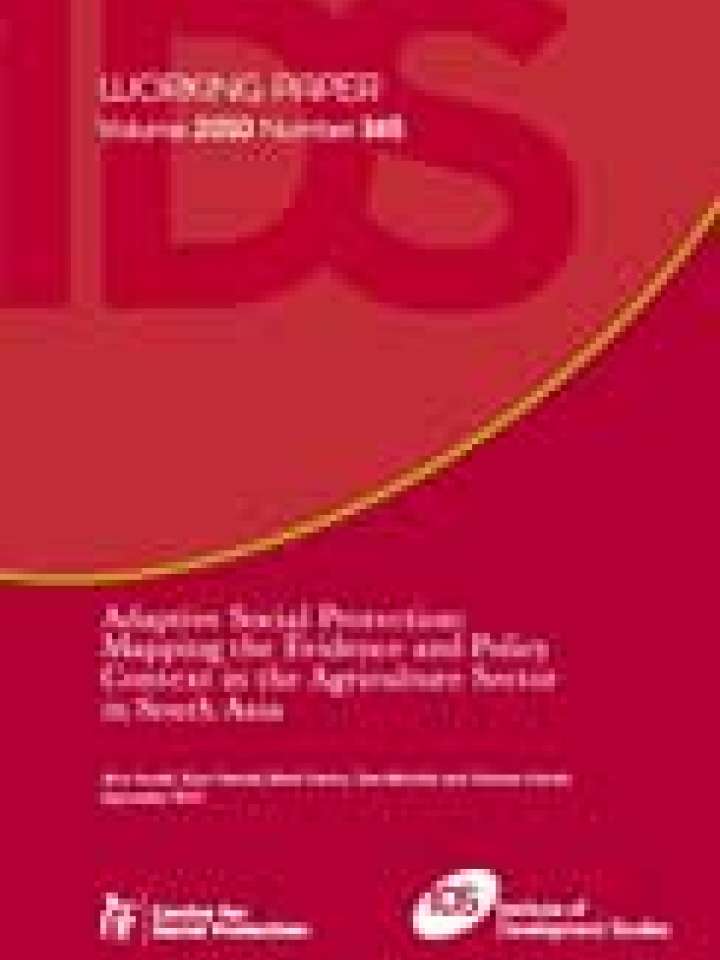Adaptive social protection: mapping the evidence and policy context in the agriculture sector in South Asia
IDS working paper 345:
This paper presents the concept of Adaptive Social Protection (ASP) which refers to a series of measures which aims to build resilience of the poorest and most vulnerable people to climate change by combining elements of social protection (SP), disaster risk reduction (DRR) and climate change adaptation (CCA) in programmes and projects. It aims to provide an initial assessment of the ways in which these elements are being brought together in development policy and practice, by conducting a meta-analysis of 124 agricultural programmes implemented in five countries in south Asia (Afghanistan, Bangladesh, India, Nepal and Pakistan). It intends to provide valuable lessons and insights for the promotion of climate resilient livelihoods amongst policy-makers and practitioners.
The paper shows that full integration of SP, DRR and CCA is relatively limited in south Asia, although there has been significant progress in combining SP and DRR in the last ten years and that projects that combine elements of SP, DRR and CCA tend to emphasise broad poverty and vulnerability reduction goals relative to those that do not.
Explore further
